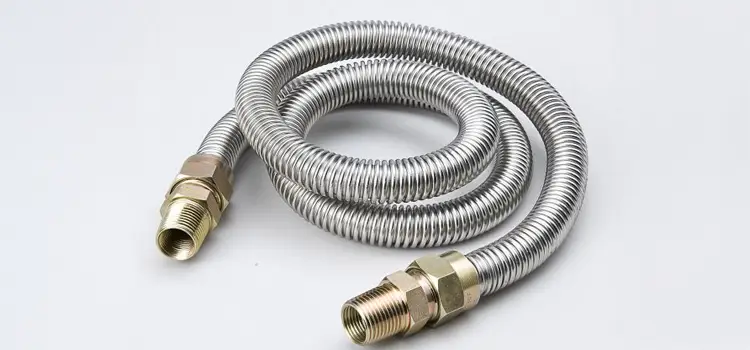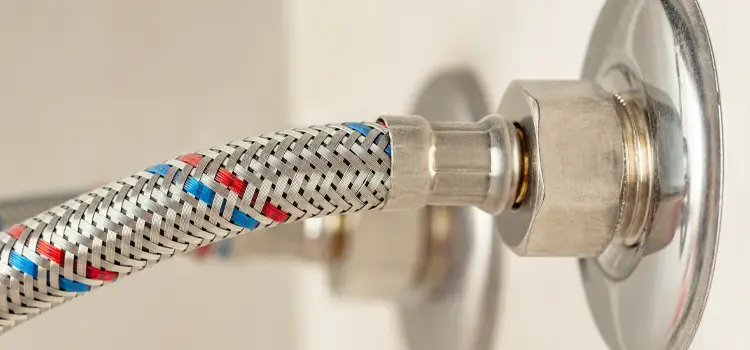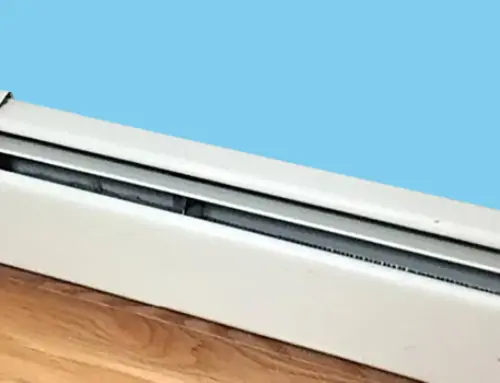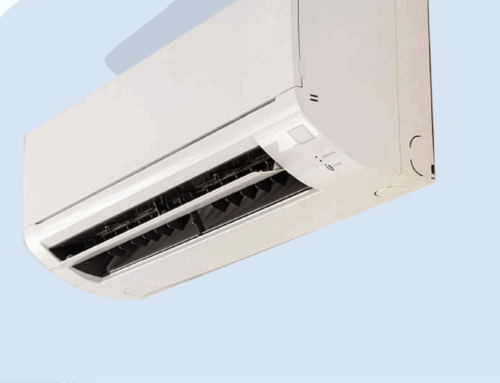How Safe Are Natural Gas Hoses?
by Tyler Castle
14.2 min read
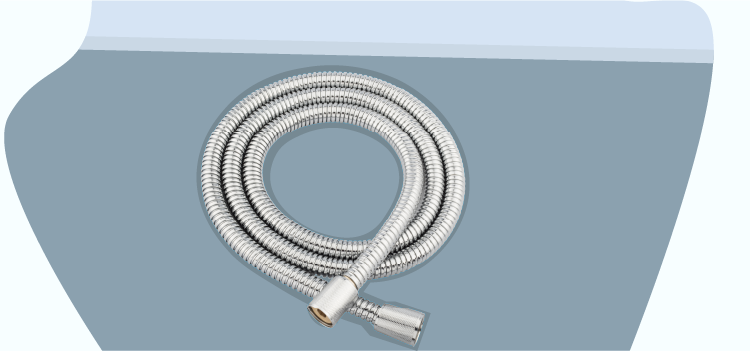
Natural gas plays a critical role in modern homes and businesses, serving as a primary energy source for various daily activities. This gas that’s piped through natural gas hoses are commonly used for heating, cooking, and powering appliances, offering a convenient alternative to electricity in many regions.
However, safety concerns arise, particularly when it comes to natural gas hoses. Without careful attention, issues like leaks and damage can occur, posing risks to property and personal safety. Don’t worry, we’ll help you determine how safe natural gas hoses are and share our best tips for hose safety.
How safe are natural has hoses?
Natural gas hoses are perfectly safe when used and maintained properly.
However, every gas component has its safety concerns if not installed properly. To ensure the safety of your natural gas hose:
Check Its Durability: Natural gas hoses are made from durable materials designed to withstand the pressure of gas flow and are typically reinforced to prevent leaks.
Installation: Proper installation by a licensed professional is critical for safety. Incorrect installation can lead to leaks or even gas buildup, which can be hazardous.
Regular Inspections: Natural gas hoses should be inspected regularly for signs of damage, wear, or leaks. Early detection of small issues can prevent larger, more dangerous problems.
Use Approved Hoses: Only use hoses that are specifically designed for natural gas. These hoses meet industry standards for gas pressure and safety.
Ventilation: Ensure that there is proper ventilation in areas where natural gas is used, as poorly ventilated areas can increase the risk of gas buildup.
Standards to ensure the safety of natural gas hoses
To further prove how safe a natural gas hose is, it’s important to understand the safety standards set in place for natural gas hoses. To ensure safe installation and long-lasting performance, several organizations have established stringent guidelines and standards that regulate the production and use of natural gas hoses.
American National Standards Institute (ANSI): ANSI establishes performance and safety standards for a wide range of products, including natural gas hoses. The ANSI focuses specifically on flexible connectors for gas appliances to ensure their durability.
Underwriters Laboratories (UL) Certification: UL is a global leader in safety certification and product testing. Gas hoses that carry the UL mark have been tested under extreme conditions, such as high temperatures and pressure fluctuations, to ensure they meet safety and performance standards. If your natural gas hose comes without this mark, it may be a faulty hose.
National Fire Protection Association (NFPA): The NFPA is responsible for setting fire safety guidelines that also include natural gas systems. NFPA provides detailed regulations for the installation, maintenance, and operation of gas hoses and connections to prevent fire hazards.
Local Building Codes and Regulations: In addition to national and international standards, local building codes often include specific requirements for the installation and use of natural gas hoses. These codes vary by region but are designed to meet the unique safety and environmental concerns of local areas.
Manufacturers’ Recommendations: Each manufacturer provides detailed guidelines on the proper use, maintenance, and replacement schedules for their specific gas hose products. Following manufacturers’ recommendations ensures the longevity and safety of natural gas hoses.
Types of natural gas hoses
When selecting a natural gas hose, the choice depends on the specific application, environment, and durability needs. Each hose type has its advantages depending on where and how it will be used. Here are some of the most common natural gas hoses to choose from:
1. Flexible Metal Hoses
Flexible natural gas hoses are made from durable materials like corrugated stainless steel. Flexible metal hoses are designed to handle high pressure and resist corrosion. These flexible natural gas hoses are often used in permanent installations, such as gas stoves, water heaters, and furnaces.
Metal flexible natural gas hoses are ideal for indoor and outdoor installations where the hose needs to remain flexible but durable, like in tight spaces. Metal hoses are commonly used in residential and commercial applications because of their long lifespan and ability to withstand wear over time.
2. Rubber and Synthetic Hoses
Rubber and synthetic hoses are composed of layers of rubber or other flexible synthetic materials. These hoses are typically reinforced to handle gas pressure and exposure to various elements. Rubber natural gas hoses are best suited for temporary setups or outdoor use, like portable grills and heaters.
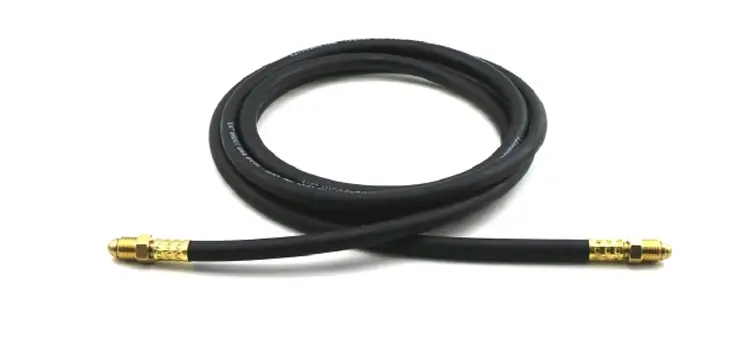 3. Braided Stainless Steel Hoses
3. Braided Stainless Steel Hoses
These hoses are made from stainless steel, offering both flexibility and durability. Stainless steel hoses have an inner rubber or synthetic layer providing added strength and protection. Stainless steel hoses are used in commercial kitchens and industrial settings due to their ability to handle high-pressure environments. This type of natural gas hose is ideal for dryers and stoves requiring extra protection against leaks and damage, like gas ranges and dryers.
4. PVC (Polyvinyl Chloride) Hoses
PVC hoses are lightweight and made from plasticized polyvinyl chloride, often reinforced with additional layers for durability. These hoses are generally less expensive but are not as durable as metal alternatives. Best for areas where lower pressures are involved and the hose is not exposed to extreme temperatures or wear.
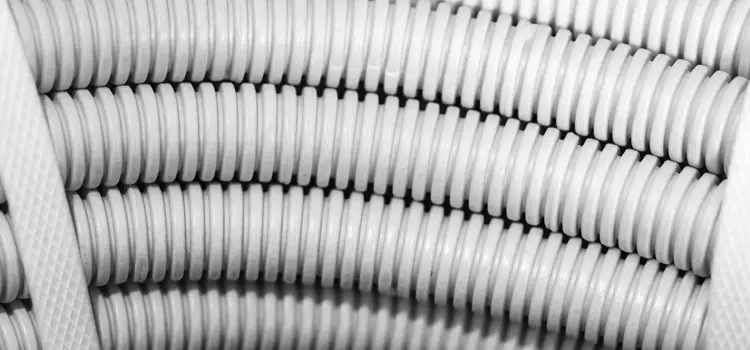
Common uses of natural gas hoses in homes
Natural gas can be used for so many functions in your home. Here are some of the most common:
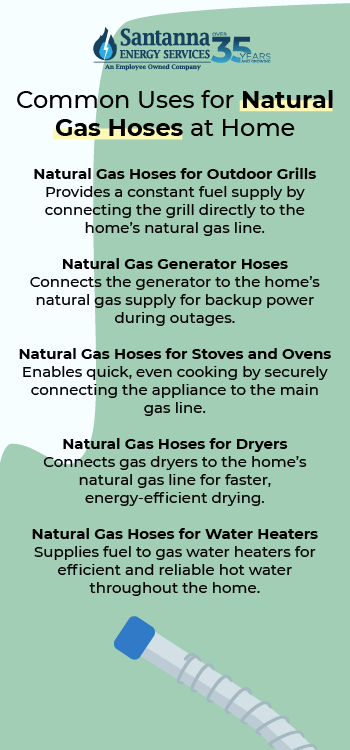
Natural gas hoses for outdoor grills
Many homeowners prefer natural gas grills over propane due to the convenience of a constant fuel supply. Natural gas hoses for outdoor grills connect directly to the home’s natural gas line. Natural gas hoses can be used for outdoor patios, decks, or backyard grilling areas.
Natural gas generator hoses
Natural gas-powered generators provide backup electricity during power outages. A natural gas generator hose is used to connect the generator to the home’s natural gas supply to power the generator. These natural gas hoses are usually installed near the home’s exterior. If you’re considering a natural gas generator hose, be sure your hose is properly sized for the generator’s gas consumption and securely connected to avoid leaks.
Natural gas hoses for stoves and ovens
Natural gas stoves and ovens are popular for their efficient, controllable heat. Natural gas hoses provide a reliable connection to the home’s main gas line, enabling quick and even cooking. Natural gas hoses can be used to connect stoves in kitchens in both residential and commercial settings. Choosing a natural gas stove provides consistent heat for precise cooking.
Natural gas hoses for dryers
Many households opt for gas dryers for their energy efficiency and faster drying times. Gas hoses connect the dryer directly to the natural gas line. Natural gas dryers typically have faster drying times which can lead to less energy consumption.
Natural gas hoses for water heaters
Gas water heaters use natural gas hoses to supply a constant flow of fuel, allowing for an efficient and steady hot water supply throughout the home. Natural gas water heaters require a safe and professional installation; hoses should be rated for hot water heater use.
Factors affecting the safety of natural gas hoses
To understand the safety of a natural gas hose, it’s essential to consider several key factors that influence its reliability and performance:
Material Durability and Longevity: The type of material used to manufacture the hose greatly influences its safety. Durable materials such as stainless steel and high-quality rubber resist wear, corrosion, and high pressure. Durable hoses are less likely to crack, leak, or degrade over time, reducing the risk of gas leaks.
Flexibility and Resistance to Corrosion: Flexible hoses need to maintain their shape and performance in tight spaces. Additionally, resistance to corrosion (especially for outdoor or high-moisture environments) is crucial. Hoses that lack flexibility may kink, bend, or crack, leading to leaks.
Temperature and Pressure Tolerances: Natural gas hoses must handle varying pressures and temperatures, especially in extreme environments like industrial settings or outdoor installations. Hoses with low temperature or pressure tolerances can burst or become brittle in extreme conditions, leading to hazardous leaks.
Proper Fittings and Connections: Ensuring secure and tight fittings is crucial for preventing gas leaks. Improperly sized or incorrectly installed connections can lead to gas escaping from the hose.
Signs of Wear and Tear: Over time, hoses can degrade due to constant use, environmental exposure, or aging, showing signs like cracking, discoloration, or brittleness. Ignoring signs of wear and tear can lead to hose failures.
Installation Quality: Correct installation by professionals ensures that the hose is fitted properly, avoiding common risks like kinks, excessive bending, or misaligned connections. Poor installation is one of the leading causes of gas hose failures.
Maintenance and Inspection Practices: Neglecting maintenance leads to undetected wear, which can result in dangerous leaks. Proper maintenance prolongs the hose’s lifespan and ensures continuous safety.
Common hazards and risks of natural gas hoses
While natural gas hoses are designed to be durable and safe, it’s important to be aware of the potential hazards and risks associated with their use. Understanding these common risks can help you take proactive steps to maintain safety and prevent accidents. Here are the most common safety risks that come with natural gas hoses:
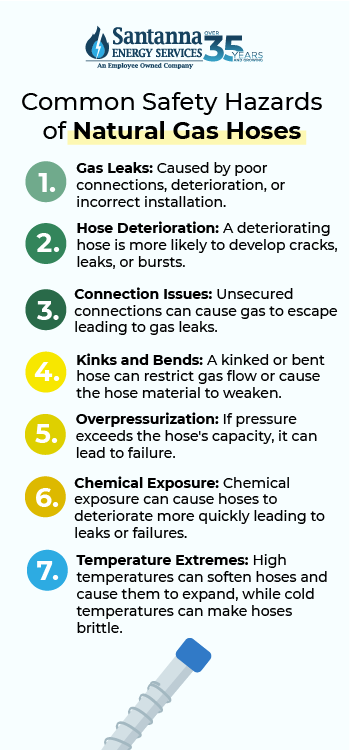
- Gas Leaks: Gas leaks occur when natural gas escapes from a hose or fitting. Natural gas leaks from hoses can be caused by poor connections, deterioration, or incorrect installation. Gas leaks can lead to an increased risk of fire, explosions, and carbon monoxide poisoning. Even a small leak can lead to severe safety hazards if not quickly addressed.
- Hose Deterioration: Over time, natural gas hoses may wear down due to environmental factors or prolonged use. If not properly addressed, a deteriorating hose is more likely to develop cracks, leaks, or bursts, all of which can compromise the safety of the gas system and your home.
- Connection Issues: Loose or poorly installed natural gas hose connections, or using incorrect fitting sizes, can lead to gas leaks. Unsecured connections can cause gas to escape into the environment, posing a safety risk. Additionally, if connections break under pressure, they can lead to dangerous gas release.
- Kinks and Bends: Hoses that are bent or kinked are at risk of cracking or breaking. A kinked or bent hose can restrict gas flow or cause the hose material to weaken, increasing the likelihood of leaks or complete failure.
- Overpressurization: Hoses are designed to handle specific pressure ranges. If pressure exceeds the hose’s capacity, it can lead to failure. Excessive pressure can cause hoses to burst or lead to leaks at connection points.
- Chemical Exposure: Chemicals in the environment or within the gas line itself can degrade hose materials or even lead to explosions if your gas hose is leaking. Chemical exposure can cause hoses to deteriorate more quickly leading to leaks or failures.
- Temperature Extremes: Natural gas hoses may be affected by extreme heat or cold. High temperatures can soften hoses and cause them to expand, while cold temperatures can make hoses brittle, both of which increase the risk of failure or leaks.
Types of gas leaks
In case the safety of your natural gas hose is compromised, it’s important to know some of the most common types of gas leaks and how to deal with them.
In an appliance gas leak, gas escapes from household devices that use natural gas, such as stoves, water heaters, or fireplaces. This is usually caused by worn or damaged gas connections, improper installation, or malfunctioning gas valves are the main causes of appliance leaks.
In the same way, heating equipment leaks involve furnaces, boilers, or other home heating systems that run on natural gas. This can happen if the safety of your natural gas hose is compromised. Heating equipment leaks can be particularly hazardous during colder months when these appliances are in constant use. This can pose risks of gas buildup and carbon monoxide poisoning.
Be sure to keep your nose open for a strong gas odor around the appliance, malfunctioning equipment, or visible damage to hoses or connectors. These are huge signs of gas leaks in your home. Regular inspection of gas appliances and your hoses can prevent potential leaks.
Recognizing the signs of a hose failure
- Your House Stinks: If you smell sulfur or rotten eggs in your home, it could be an indicator of a gas leak. Evacuate the house immediately and contact your gas company or emergency services.
- You Don’t Feel Well: Exposure to natural gas leaks can lead to symptoms like headaches, dizziness, nausea, or fatigue. If multiple people in your home are experiencing these symptoms, especially in areas where gas appliances are used, it could be a gas leak.
- Gas Pipes/Appliances Are Hissing: A hissing or whistling noise near gas lines or appliances indicates a potential gas leak. Listen for unusual sounds around your gas stove, water heater, or near gas lines.
- Strange Clouds, Mist, or Fog: If a gas line is ruptured, it may release gas that creates clouds, mist, or fog in the surrounding area.
- Dead/Dying Plants: Natural gas can suffocate plant roots, causing surrounding vegetation to die unexpectedly.
How to respond quickly to natural gas exposure
If your natural gas hose is compromised and you feel you’ve been exposed to natural gas toxins, here’s what to do to ensure your safety:
- Turn Off the Gas Supply Immediately: Locate the gas shut-off valve near the gas appliance or main supply. Turn the valve clockwise to close it and stop the flow of gas. Stopping the gas flow can prevent further leakage and reduce the risk of ignition, explosions, or toxic inhalation.
- Evacuate the Area: Leave the premises immediately, taking all people and pets with you. Ensure everyone moves away from the gas-affected area.
- Call Emergency Services: Once safely outside the home or building, call your local emergency services or gas provider.
- Ventilate the Area (If Safe to Do So): If the leak is small and it’s safe, open windows and doors to help dissipate the gas. Only do this if there’s no immediate danger.
- Do Not Use Electronic Devices or Open Flames: Don’t turn on lights, use matches, lighters, or even your mobile phone near the leak. Avoid starting your car if it’s in an attached garage.
- Install a Natural Gas Detector Contrary to what some might believe, carbon monoxide detectors do not detect natural gas leaks. To avoid future harm of natural gas leaks, purchase a separate natural gas detector to further protect your home and your family.
How to check and maintain natural gas hoses
- Regular Visual Inspections: Check for any visible signs of wear, cracking, or damage on the hose. Look at the surface for abrasions, discolored spots, or any unusual texture changes.
- Leak Detection: Use a gas leak detector solution or a mixture of soap and water to spray on connections and the hose. Bubbles forming around any area indicate a gas leak.
- Checking Hose Flexibility: Flex the hose gently to see if it bends smoothly without stiffness or cracking. Check that it’s not kinked, overly stiff, or brittle.
- Ensuring Proper Fitting Tightness: Check that all connections between the hose, gas supply, and appliances are snug and tight. Use a wrench or pliers to tighten fittings if they feel loose.
- Replacement of Worn or Damaged Hoses: If you notice any cracks, wear marks, or obvious damage during your inspection, replace the hose immediately.
- Storing Spare Hoses Correctly: Ensure spare hoses are stored in a dry, cool environment away from sunlight, chemicals, or sharp objects that could cause damage.
Natural gas hose installation best practices
It’s vital to hire a licensed gas technician for the installation of natural gas hoses. These professionals ensure that the hose is correctly connected and in compliance with safety standards. Incorrect installation is one of the most significant risks associated with natural gas hoses.
Hoses should be placed in a way that avoids bending, kinking, or undue stress on the hose. Poor placement can cause weaknesses over time, leading to cracks or leaks.
In the end, natural gas hoses are completely safe with the right maintenance and safety practices in place. Staying informed about potential risks and taking preventative measures will further protect your home allowing you to enjoy the benefits of natural gas with confidence and peace of mind. If you’re in the market for natural gas for your home, Santanna Energy Services has energy solutions for all your needs and sustainable goals.
Santanna Energy Services is a supplier of earth-friendly natural gas and electricity solutions for your home. For over 35 years, Santanna has served customers in Illinois, Indiana, Pennsylvania, Michigan, and Ohio. Our mission is to provide innovative and cost-effective energy solutions that will help our customers achieve their energy goals.
Tyler is an experienced energy professional, having worked for Santanna Energy Services, for the past four years. He is passionate about renewable energy and believes that diversifying the energy grid is the key to a sustainable future. Tyler is dedicated to supplying consumers with the best possible energy solutions and works diligently to make sure that Santanna can deliver the highest quality service.


